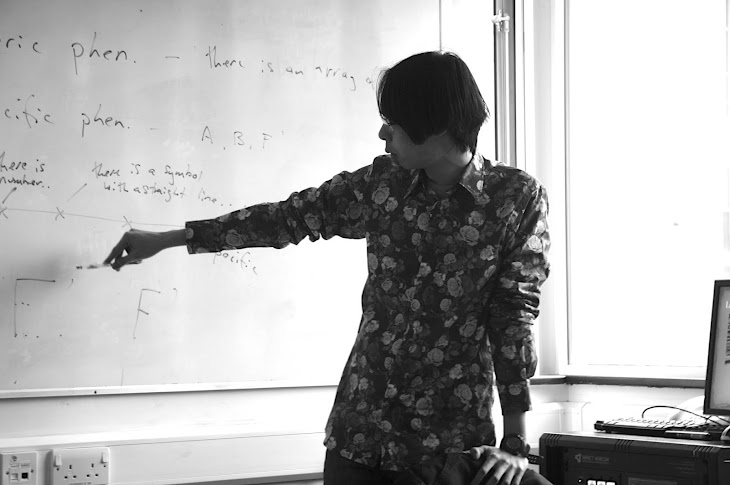"The Mind-world problem
Lecture 1: Where is the mind?
Lecture 2: Narrow content
Lecture 3: Anti-individualism
The discussion in the lectures will be structured around the following headings:
Should we be internalists or externalists about the mind?
Is mental content narrow or wide?
Should we be individualists or anti-individualists in the philosophy of mind?
Some will hear these three headings as three different wordings of the one underlying issue. One package deal is internalism, narrow content and individualism; the other package deal is externalism, wide content and anti-individualism. However, I think it is important to unpick the packages. Here is how I will do the unpicking.
I. The debate between internalists and externalists is a debate over the location of mental states. Internalists affirm that mental states are internal states, that they are inside us, being almost certainly states of our brains. The externalist position is not so clear cut. Sometimes the view is that asking after the location of a mental state is something of a nonsense question; all one can sensibly ask about is the location of the person in some mental state. Sometimes the view is that mental states are spread out in space in a way that, in some sense, includes what they are about.
II. The debate between those who hold that mental content is narrow and those who hold that mental content is wide is over whether or not the contents of subjects' mental states supervene on how subjects are from the skin in. The supporter of narrow content affirms that the contents of subjects' mental states supervene on how subjects are from the skin in ?no difference in content without an internal difference; the supporter of wide content holds that internally identical subjects can have mental states with different contents.
III. Individualism is the doctrine that the mental state a subject is in is an intrinsic property of the subject. Anti-individualism is the doctrine that the mental state a subject is in is, in large part, a matter of how the subject is related to his or her environment.
I will be arguing in these lectures that internalism is true, that mental content is narrow, and that anti-individualism is true. I know some will wonder if this is a consistent set of claims. How, for example, can one consistently espouse anti-individualism as just explained, at the same time as holding that content is narrow? Good question. All will, I trust, be clear as the lectures proceed."
Lecture 1: Where is the mind?
Lecture 2: Narrow content
Lecture 3: Anti-individualism
The discussion in the lectures will be structured around the following headings:
Should we be internalists or externalists about the mind?
Is mental content narrow or wide?
Should we be individualists or anti-individualists in the philosophy of mind?
Some will hear these three headings as three different wordings of the one underlying issue. One package deal is internalism, narrow content and individualism; the other package deal is externalism, wide content and anti-individualism. However, I think it is important to unpick the packages. Here is how I will do the unpicking.
I. The debate between internalists and externalists is a debate over the location of mental states. Internalists affirm that mental states are internal states, that they are inside us, being almost certainly states of our brains. The externalist position is not so clear cut. Sometimes the view is that asking after the location of a mental state is something of a nonsense question; all one can sensibly ask about is the location of the person in some mental state. Sometimes the view is that mental states are spread out in space in a way that, in some sense, includes what they are about.
II. The debate between those who hold that mental content is narrow and those who hold that mental content is wide is over whether or not the contents of subjects' mental states supervene on how subjects are from the skin in. The supporter of narrow content affirms that the contents of subjects' mental states supervene on how subjects are from the skin in ?no difference in content without an internal difference; the supporter of wide content holds that internally identical subjects can have mental states with different contents.
III. Individualism is the doctrine that the mental state a subject is in is an intrinsic property of the subject. Anti-individualism is the doctrine that the mental state a subject is in is, in large part, a matter of how the subject is related to his or her environment.
I will be arguing in these lectures that internalism is true, that mental content is narrow, and that anti-individualism is true. I know some will wonder if this is a consistent set of claims. How, for example, can one consistently espouse anti-individualism as just explained, at the same time as holding that content is narrow? Good question. All will, I trust, be clear as the lectures proceed."
I am not going to comment on the above remarks; rather I am interested in a side issue. In carrying out the last lecture, Jackson argues for certain views concerning perceptual content. With the proviso that he does not like all the relevant terminologies, he holds that perceptual contents are both propositional and conceptual, since he thinks this is the only tenable version of intentionalism. When I pressed some familiar questions concerning the differences between perceptions and propositional attitudes like beliefs, he insisted that in regarding perceptual contents as propositional, he does not commit to the view that perceptual contents have anything like sentential structures.
Now, given that Jackson champions a version of possible world semantics, it is not difficult to interpret his response. For him, semantic contents are unstructured, so normal objections against propositional views about perception, even successful, are irrelevant to his position. But what does it even mean to say that propositions are unstructured? It has become an official slogan of possible world semantics at least after Stalnaker. I am not in a position to evaluate the situation, to be sure, but my feeling is that to say propositions are not structured is to undermine the whole point of the idea of propositions. To say something is propositional, it seems to me, is to say that something has propositional structures. In another word, I think a more proper way to think about possible world semantics is to say that it is a kind of eliminativism about proposition. It wants to do semantics without the idea of proposition. If so, then Jackson's view should be understood as follows: perceptual contents, as linguistic ones, are sets of possible worlds; they are non-propositional, since they do not have structures. Jackson himself says that his current view is surprisingly like early McDowell's, but I think when we bear his possible world semantics in mind, it becomes clear that his view and McDowell's one are extremely different.
I suspect that the debate between Fregean/Russellian structural semantics and possible world nonstructural semantics creates the largest chasm in philosophical semantics, by the way.


